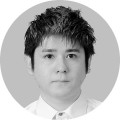GI Antiwar Movement and Okinawa

On October 16, 2011, at the office in New York, William Schaap (left), the lawyer who has been pursuing the devious activities of the CIA for long time, and his partner, Ellen Ray.
May 21, 2012 ChotaTakamine
 Around the time when Okinawa returned to Japanese sovereignty in 1972, American activists came to Okinawa to support the GI Antiwar Movement. In cooperation with mass movements already under way in Okinawa, they protested against the U.S. policy on Vietnam War, and the presence of the U.S. military forces in Okinawa. On the occasion of the 40th anniversary of Okinawa’s reversion from U.S. rule to Japanese sovereignty, I travelled around the United States to meet the people who were engaged in these antiwar movements.
Around the time when Okinawa returned to Japanese sovereignty in 1972, American activists came to Okinawa to support the GI Antiwar Movement. In cooperation with mass movements already under way in Okinawa, they protested against the U.S. policy on Vietnam War, and the presence of the U.S. military forces in Okinawa. On the occasion of the 40th anniversary of Okinawa’s reversion from U.S. rule to Japanese sovereignty, I travelled around the United States to meet the people who were engaged in these antiwar movements.
Lawyer William Schaap, who currently lives in New York, is well-known for his long, ongoing investigation into devious activities of the Central Intelligence Agency (CIA). Shaap supported antiwar GIs as a lawyer during the 1970s.
He started his legal career on Wall Street. As a part of the projects initiated by an association of progressive lawyers and jurists, the National Lawyers Guild, Shaap went to Okinawa along with his partner, Ellen Ray shortly after Okinawa’s return to Japan in September 1972. There, he worked as a defense lawyer, representing Vietnam antiwar GIs.
Despite not being a military law expert, Shaap had no trouble winning cases against Defense in the anti-war climate of the 1970s, Shaap said,“I did not know anything about the military law. But it was very easy for us to drive the U.S. military crazy because we were not in the military. The military defense attorneys were limited in what they can do because they were part of the military. So, we were able to do pretty good for all of our clients.” Having a relationship with local people, Shaap and Ray spent one and half years engaged in preventing soldiers from participating in the war.

On October 26, 2011, at the Annie E.Casey Foundation, Bart Lubow, who is engaged in activities for reducing youth incarceration.
After coming back to the United States, Shaap and Ray moved to Germany and Italy, where the U.S. military forces were stationed at that time. They again provided legal support to antiwar GIs based on the experiences they gained in Okinawa. Then Shaap and Ray moved to Washington D.C., where they began investigating the CIA’s covert media agenda.
Shaap claimed the CIA exerted its influence over a wide network of journalists and media outlets, saying, “The CIA would have many journalists who were on their payroll. The CIA could influence the American public opinion by having their people writing stories on the big newspapers in the United States. But they were doing this all over the world. The CIA had very high contacts in big Tokyo newspapers. For example, the story written by the CIA became the editorial of one of the Japanese major newspapers.” During the Cold War, the CIA also had installations in Okinawa, forging a “deep relationship” between the CIA and the U.S. military facilities on the island.
Asked about the September 11 attacks, the War in Afghanistan and the 2003 invasion of Iraq, Shaap was adamant, “I think both wars were wrong. We do not believe the United States should interfere militarily. These are pointless because tens of thousands of Americans are getting killed, and hundred thousands of Iraqis and Afghanis have been killed. We are very much against the U.S. intervention at all.” Ray said, “Billions of dollars being spent for the wars is outrageous when people do not have jobs in this country.”
Bart Lubow, the director of the Annie E.Casey Foundation, participated in the GI Antiwar Movement in Okinawa in the beginning of the 1970s. Lubow reflected on that time, saying, “We lived in a house called People’s House in Koza (currently Okinawa City), which was a GI center, and did all kinds of activities for supporting antiwar GIs.”
As the anti-war movements gathered momentum all over the United States, there was little knowledge of anti-war movements within the U.S. military. Lubow and fellow activists published a newspaper for antiwar GIs, and had joint demonstrations with a Zengunro, the All-Okinawa Base Workers Union. Lubow recalls a rally attended by thousands, “We held this one giant concert rally. Maybe, 5000 GIs came to the rally.” In December 1971, at the Ryukyuan-American Friendship Center in Okinawa City, the Free Theater Association held the anti-war show, in which Hollywood actress Jane Fonda participated.
Lubow said that when he returned from Okinawa to the United States, he had fundamentally changed. Lubow currently works on campaigns to reduce youth incarceration.
(English translation by T&CT, Jane Barraclough)
Previous Article:Tens of thousands participate in protest rally against Osprey deployment in Okinawa
Next Article:GI Antiwar Movement and Okinawa II
[Similar Articles]
- GI Antiwar Movement and Okinawa II
- American activist refers to Okinawa’s reversion to Japanese sovereignty with U.S. military presence intact as “fraud”
- 3,900 people including vice governor rally against construction of new US base in Henoko
- Villagers hold protest rally against US Osprey and F-35’s training on Ie Island
- Okinawa to hold huge prost rally against suspected murder by ex US marine

 Webcam(Kokusai Street)
Webcam(Kokusai Street)


